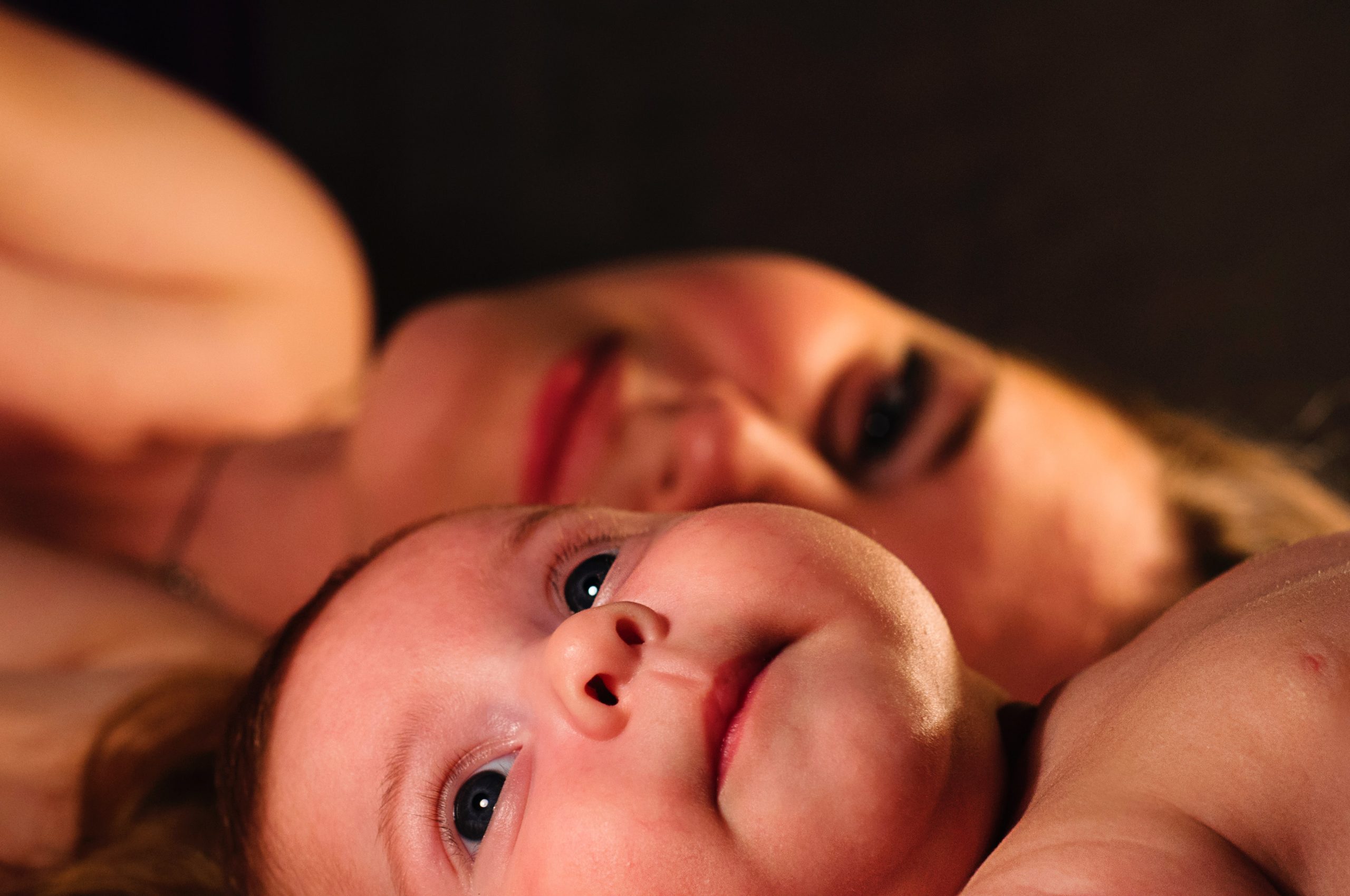The Pros and Cons of Co-Sleeping

As new parents, one of the biggest decisions you’ll have to make is where your baby will sleep. Should you put them in a crib in their own room, or keep them close by in a co-sleeping arrangement? Co-sleeping, also known as bed-sharing or family bed, is a popular choice for many families, but it’s not without its pros and cons. In this post, we’ll explore some of the factors to consider when making this decision. Whether you’re a mom, a dad, or a couple, this post will help you to decide what’s best for you and your family.
The Pros
One of the biggest pros of co-sleeping is the convenience and ease of nighttime feedings and diaper changes. Keeping your baby close by means you can respond to their needs quickly and easily, without having to get out of bed and leave your own bed. And let me tell you, as a mom who’s stumbled around in the dark avoiding toys on the floor to get to the baby’s room, the convenience of co-sleeping is priceless. Additionally, many parents find that co-sleeping helps to strengthen the bond between parent and child. For example, many new dads find that co-sleeping allows them to be more involved in their baby’s care, and they love waking up to those adorable little faces right next to them. But let’s be real, dads, it also means no more “Netflix and chill” time in bed.
Another pro of co-sleeping is that it can promote better sleep for both the baby and the parents. Studies have shown that babies who co-sleep with their parents have better sleep patterns and wake less frequently during the night. This is because the baby can feel the parent’s presence and is reassured by their familiar scent and sounds, which can help them to feel more secure and fall asleep faster. And let’s be real, as parents we’ll take all the extra sleep we can get, even if it’s just an extra hour.
The Cons
While co-sleeping has its benefits, there are also some downsides to consider. One of the biggest cons is the lack of privacy and personal space for the parents. Co-sleeping can also make it harder for parents to get a good night’s sleep, as they may be awakened by the baby’s movements or cries. And let me tell you, as a mom who’s been kicked in the face by her little one, the lack of personal space can be a real thing.
Another potential con of co-sleeping is that it can be dangerous if not done properly. The American Academy of Pediatrics recommends that parents avoid co-sleeping on soft surfaces like couches or waterbeds and avoid using pillows or blankets that can pose a suffocation risk.
Factors to Consider
When deciding whether or not to co-sleep, there are several factors to consider. These include the parents’ sleep preferences and habits, the size of the bed, the baby’s age and development, and any safety concerns. It’s important to weigh the pros and cons and make a decision that’s best for your family. For example, if you’re a light sleeper and easily wake up to noises, co-sleeping might not be the best option for you. But if you’re a heavy sleeper and don’t mind the occasional kick to the face, then go for it!
It’s also important to note that co-sleeping is not a permanent arrangement, and as your baby grows and develops, you may find that it’s no longer necessary or practical. The key is to be flexible and adapt to your baby’s needs as they change. And always remember, what’s most important is that your baby is safe and comfortable, and that you and your partner are getting the rest you need. And don’t forget to communicate with your partner, it’s important to make a decision that works for both of you.
Ultimately, the decision of whether or not to co-sleep is a personal one that depends on the needs of your family. And remember, whether you choose to co-sleep or not, what’s most important is that you and your baby get the rest and security you need. And don’t forget to enjoy the journey, it’s a beautiful and rewarding one.
